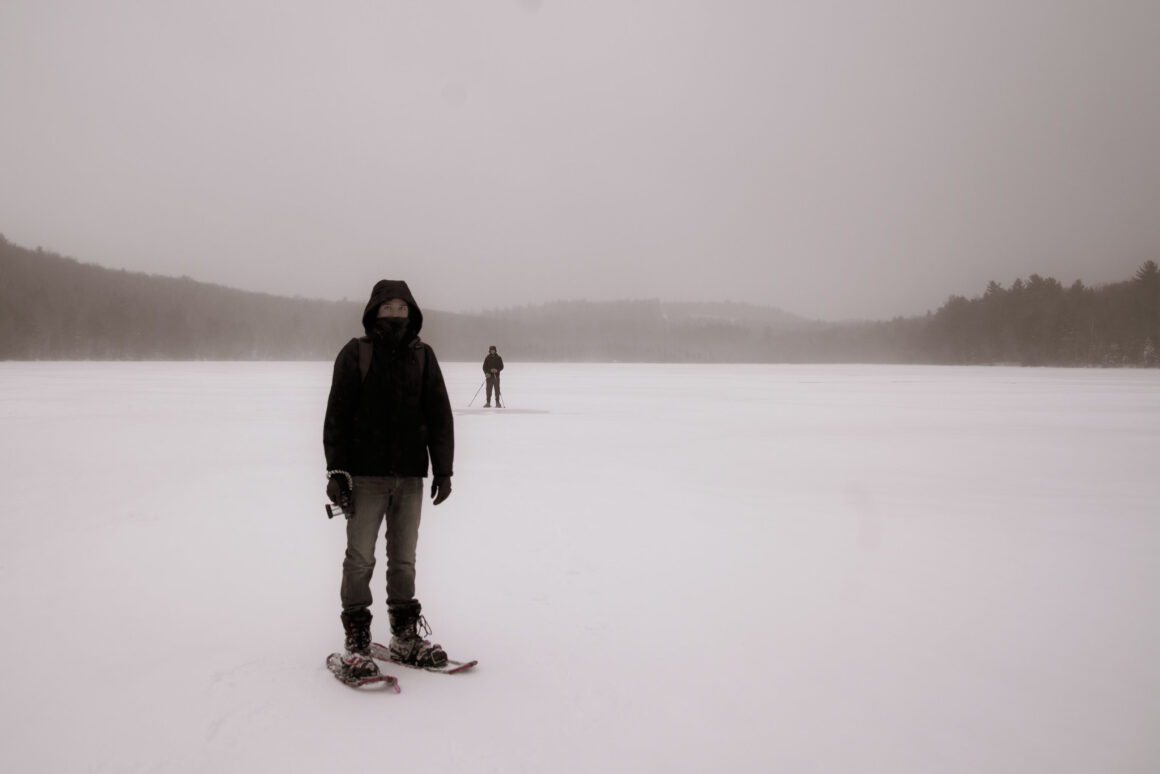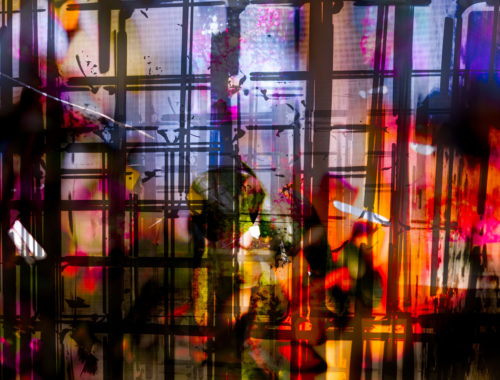
It Was Never a Fair Game
Once again, it is International Women’s Day. We ladies get thrown the annual bone: “Here you go, girls. Satisfy yourselves with that,” and we’re supposed to be somehow grateful. I don’t know, maybe we should enjoy it while it lasts. At the rate our handlers and their useful idiots are going, women will be erased completely before you know it. With men-pretending-to-be-women taking over the runway, the magazine cover, the maternity ward, the locker room, the swimming pool, and the awards ceremony, I don’t know what we’ll have left.
For now, we women exist, but I have to wonder how even one of us stands a chance at not betraying herself when every institution—the Church, the State, the School, the Law, the Hospital, the Corporation, yes, even the Family—that comprises our society was built and maintained by men for the overwhelming benefit of men.
Let’s take a look at how this came about, with the help of Camille Paglia in Sexual Personae. Oh, and you can tamp down those prejudices that are rearing their ugly heads right now. Most self-described feminists hate Camille because she doesn’t play by their rules. I find plenty in her book to argue with, but that doesn’t change the fact that most of her insights are brilliant. Here, we’ll just focus on her introductory anthropology lesson, taken from page 1 and page 9:
Society is an artificial construction, a defense against nature’s power. Without society, we would be storm-tossed on the barbarous sea that is nature. Society is a system of inherited forms reducing our humiliating passivity to nature. We may alter these forms, slowly or suddenly, but no change in society will change nature. Human beings are not nature’s favorites.* We are merely one of a multitude of species upon which nature indiscriminately exerts its force. Nature has a master agenda we can only dimly know. …
The identification of woman with nature was universal in prehistory. In hunting or agrarian societies dependent upon nature, femaleness was honored as an immanent principle of fertility. As culture progressed, crafts and commerce supplied a concentration of resources freeing men from the caprices of weather or the handicap of geography. With nature at one remove, femaleness receded in importance. …
Western culture from the start has swerved from femaleness. The last major western society to worship female powers was Minoan Crete. And significantly, that fell and did not rise again. The immediate cause of its collapse—quake, plague, or invasion—is beside the point. The lesson is that cultic femaleness is no guarantee of cultural strength or viability. What did survive, what did vanquish circumstance and stamp its mind-set on Europe was Mycenaean warrior culture, descending to us through Homer. The male will-to-power: Mycenaeans from the south and Dorians from the north would fuse to form Apollonian Athens, from which came the Greco-Roman line of western history.
Both the Apollonian and Judeo-Christian traditions are transcendental. That is, they seek to surmount or transcend nature.** Despite Greek culture’s contrary Dionysian element, which I will discuss, high classicism was an Apollonian achievement. Judaism, Christianity’s parent sect, is the most powerful of protests against nature. The Old Testament asserts that a father god made nature and that differentiation into objects and gender was after the fact of his maleness. Judeo-Christianity, like worship of the Olympian gods, is a sky-cult. It is an advanced stage in the history of religion, which everywhere began as earth-cult, veneration of fruitful nature.
Sexual Personae was published in paperback in 1991 and was still causing a bit of a sensation when I began working at Barnes & Noble in 1992. My prejudices kept me from reading the book back then, but I finally did in 2020, going through it slowly and methodically, taking pages of notes, doing the same, at the same time, with Jordan Peterson’s Maps of Meaning. The two played beautifully together, but I never finished Peterson’s book. Maybe someday. For now, I’m back in the pages of Paglia’s and I’m happy to be there. It’s amazing what you can learn when you let down your guard and let things into your brain.
*I think molds and fungi are.
**Nature: identified with women, remember?





4 Comments
Mo Magnon
“[…] every institution—the Church, the State, the School, the Law, the Hospital, the Corporation, yes, even the Family—that comprises our society was built and maintained by men for the overwhelming benefit of men.”
This, right here, is a massive misconception. Men in the manosphere state the exact opposite and claim that “every institution in society was created for the benefit of women.”
The term “gyno-centric society” is one of the most-used terms in the manosphere. The entire three-book series “The Manipulated Man” by Esther Vilar (yes, a female author in the manosphere) revolves around this concept of a gyno-centric society that favors women and exploits men.
And just like I disagree with your point, I equally disagree with Esther Vilar and the manosphere at large. I disagree with both sides of the debate. I disagree with the feminists and I disagree with the manospherians. Both sides are wrong.
Because the truth is: we do NOT live in an “andro-centric society” that favors men, nor do we live in a “gyno-centric society” that favors women. Rather, modern society is anti-man AND anti-woman. BOTH sexes are under attack with the goal to eradicate them and turn everyone into gender-less blobs.
But as long as we only focus on one side of the injustices that are happening to members of our own sex while ignoring the injustices that are equally happening to the opposite sex we will never make any progress and will forever be trapped in the division agenda.
Cheryl Ruffing
Thank you for reading and commenting, Mo. I was speaking in primal terms, as I hoped I was making clear by sharing the excerpt from Paglia’s book. Paglia’s thesis is that men build and solve problems. They are linear thinkers, always striving for bigger and better. Women, on the other hand, are cyclical (tied to the moon in more ways than one). Feminists hate Paglia because she maintains that if women were in charge, we’d still be living in grass huts. My wise and wonderful daughter told me that if women’s hormononal cycles were taken into consideration, the world would not have settled on a five-day, 8-hour work week, because that wreaks havoc on a woman’s body.
I like to say that I am a fan of reality, so I thinks it’s important to acknowledge fundamentals like this in order to understand what works, what doesn’t work, for whom, and why. On top of that, it’s especially important to recognize WHO is controlling trends in society (like you speak of) and WHY they are doing it. Who are the gatekeepers who promote certain books, news stories, articles, theories? Who are the pushers and financiers of agendas? And on the other side of the coin, who are the useful idiots, who are the victims? Personally, I would like society to be structured around what’s best for children. It’s not even close right now, and that is by design.
Mo Magnon
That’s an amazing idea to structure society around what’s best for children. Because if we structure it around either men or women it will inevitably exclude the opposite gender. Children form the society of tomorrow and it’s essential to provide an environment where they can blossom into their own version of an adult without being molded into a specific role. But the enemy also knows this and that’s why they target children so early with the indoctrination system.
Cheryl Ruffing
You are spot-on about targeting children with indoctrination. In MK Ultra Mind Control (used by intelligence agencies), children are “procured” and tortured to cause dissociation, which lets their handlers train them to be obedient NO MATTER WHAT. It is truly horrifying. Things like Drag Queen Story Hour are meant to do the same. But those examples are just extreme versions of what happens to most children when they are told that their bodies are wrong. Our physical bodies automatically produce emotions every time we experience something. Suppose you are a 3-year-old who breaks something because you’re a child and you’re playing and accidents happen. You mother gets angry, and yells, and maybe spanks you and puts you in the corner. You begin to cry. What does your mother do? She probably says something like, “Stop crying. I did it because I love you and you need to learn to be more careful.” She’ll probably soon hug you and continue as if all is well. But is it? Did you understand her words or her intentions? What has she just done? Has she taught you that you are loveable/worthy when you please her but not when you do something wrong, that you can’t trust your own body, which told you that your mom’s anger was bad when she told you it was good? How often will this scenario get repeated throughout childhood? What will happen to all those emotions you were not allowed to express? Like energy, they don’t go away, they just hang around in your body, poisoning it, until the anger or sadness or confusion or hate gets transformed into bodily ailments or gets released on substitutes like friends, strangers, or—when you’re grown—your spouse or children. What’s more, you become a person who can’t trust himself, who always looks to outsiders for affirmation, approval, love, value, respect, the right answer, a sense of worth … . Who are those others? They might be teachers, drag queens, the Church, ideologies. Alice Miller calls the societally acceptable parenting techniques most of use “poisonous pedagogy,” and very few of us can see the problems it causes because our repressed fear of losing our parents’ love exerts so much hidden control that we do anything to avoid facing it. The fear continues to control us even after our parents are dead, only now our parents’ disapproval gets replaced with the disapproval of our friends, siblings, bosses, co-workers, people we go to church with, maybe even strangers. When I was growing up, I was trained to believe that the worst thing I could do was misbehave, cause a scene, make someone else uncomfortable, so I became a people pleaser and always looked to outside sources for a sense of worth. This might have had devastating consequences, but I generally looked for approval from culturally acceptable people and institutions, so “I was just fine,” except I wasn’t. It got so bad that I ended up getting hit with anxiety attacks nearly every time I left the house (What if I say something wrong?). If I managed to get through a social situation unscathed, it just meant that I’d spend hours afterward dissecting conversations and worrying about what everyone thought of me. Days later, I’d be hit with digestive ailments, rosacea breakouts, or maybe a black mood that last too long and made my husband and kids miserable.
That healing process can be intimidating and painful, but I’ve done it, I’m still doing it, and everyone in my home has benefited. Most of the time, I am suffused with a peace I searched for my entire life, and when that peace gets shaken at all, I know that I need to dig and figure out what’s really throwing me off, because it’s certainly not what my husband just said or something one of my kids just did. I’ve uncovered the circumstances in my past that damaged me, I’ve felt the anger, the fear, the sadness, the confusion, and I’ve expressed it through yelling, crying, pacing around the house muttering like a madwoman, writing in my journal, creating “ugly art.” What I do NOT do is feel guilty about the emotions my body has RIGHTLY produced, because I now know that anyone who tries to make me feel bad for emotions produced by my body, the body God gave me, are never wrong, and I when I let myself express them immediately and innocuously (usually by using the word “fucking” a lot), my body quickly moves on, with “no hard feelings” and I no longer even think about the concept of forgiveness. Things just turn out right, the way they were meant to. As my kids process the mistakes I made with them, I sit and listen to the expression of their anger, their sadness, their fear. I let them yell at me and encourage them to get it all out. I never tell them—now—that it’s wrong of them to feel that way. It’s NOT. Making someone feel guilty because their bodies have somehow produced the “wrong” emotion is manipulation, a technique favored by emotional abusers, and I don’t put up with that anymore, whether it comes from other people, the mainstream media, government agencies, schools, or the Church.